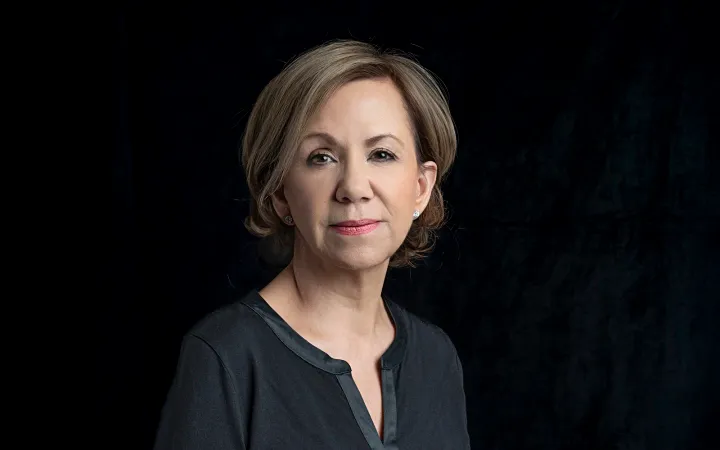Por Adela Navarro Bello
Una de las banderas electorales que tanto sirvió a Andrés Manuel López Obrador para ganar la elección presidencial en 2018, fue la del combate a la corrupción. Se aprovechó del tufo a las transas en la entonces presidencia de la República, encabezada por el priísta Enrique Peña Nieto, para expandir el hedor de los desfalcos, la defraudación al erario, el abuso de poder. Criticó sobremanera al que, solía decirse, era el sexenio más corrupto.
En los seis años de Peña Nieto se develaron La Estafa Maestra, La Casa Blanca, la desaparición de los normalistas de Ayotzinapa, las casas adquiridas por el propio ex Presidente y algunos secretarios de Estado, los gobiernos inseguros y corruptos como el de Javier Duarte en Veracruz y un enorme listado de malversaciones de fondos.
López Obrador no se contuvo y lo señaló hasta el cansancio, al tiempo que prometió acabar con la corrupción, limpiar el gobierno de arriba hacia abajo, encarcelar a los corruptos, sacar a los militares de las calles, combatir la inseguridad, disminuir los homicidios en los primeros seis meses y hacer un gobierno transparente, con rendición de cuentas y sin corrupción… pero nada de eso sucedió.
Hizo un evidente aunque nada público pacto con Enrique Peña Nieto, a quien protegió y no criticó un solo día de su administración federal. Los corruptos no terminaron en la cárcel, los cárteles de la droga no fueron combatidos, los militares no fueron sacados de la calle… Al contrario, les cedió el control administrativo de muchas áreas gubernamentales, incluyendo aeropuertos, puertos, aduanas y la seguridad a través de la Guardia Nacional.
Los homicidios no disminuyeron ni en los primeros seis meses del gobierno de AMLO, ni en los casi seis años que duró su administración; caso contrario, rebasó las cifras contabilizadas en cualquiera de los tres períodos presidenciales anteriores, situándose como el mandatario de los 200 mil muertos en hechos de violencia de alto impacto. Y antes de irse, dejó sentadas las bases para desaparecer los órganos autónomos de transparencia, rendición de cuentas, fiscalización y supervisión de acciones por sectores especializados como las telecomunicaciones o la energía. Además de invadir la esfera para transformar a su antojo el Poder Judicial, al que han sometido a selecciones de azar a partir de una tómbola, y vulnerado con elecciones públicas.
En 2018, al finalizar el sexenio “más corrupto”, el de Peña Nieto, el Índice de Percepción de la Corrupción daba a México 28 de 100 puntos, situándose ciertamente como uno de los países más comprometidos en materia de corrupción. Hace unos días, se dio a conocer el índice de 2024, el que prácticamente evalúa esa percepción, pero en el sexenio de López Obrador, y lo que parecía imposible se hizo evidente: México se percibe como un país aún más corrupto de cuando el priista gobernaba, al haber logrado 26 de 100 puntos. Es decir, la administración morenista descendió 2 puntos.
En una medición de análisis de datos, información, procesos y desarrollos, donde 0 es el más corrupto y 100 nada corrupto, México tiene 26 puntos y es el país 140 de 180 evaluados. La corrupción, a pesar de la retórica de AMLO y de la campaña de su sucesora en el Poder, Claudia Sheinbaum Pardo, sigue en México, y peor.
El Índice de Percepción de la Corrupción es elaborado por el organismo Transparencia Internacional, y en 2024, el promedio de puntos logrado fue de 34 de 100, por lo que México se sitúa muy por debajo del promedio de corrupción internacional, ubicándolo como uno de los países más corruptos.
Las condiciones sociales y políticas que hacen que México sea percibido como un país corrupto, más allá de la narrativa oficial desde el poder morenista que ya por los siete años de gobernar al país, tiene que ver de acuerdo al análisis y los especialistas a la percepción que hay entre entidades, grupos, sociedad y analistas, de un ambiente de corrupción que involucra a gobierno, empresas fiscalizadoras y crimen organizado.
El índice es establecido a través de mediciones, encuestas, análisis de riesgo financiero, consultas a académicos, en una rigurosa metodología para determinar los puntos que logra cada país.
En el caso de México, muchos coincidieron en el clima de señalamientos públicos entre partidos políticos, gobiernos y narcotráfico o crimen organizado, por ejemplo, cuando en épocas electorales señalan ligas de unos y otros con ciertos cárteles o con dinero ilícito extraído de las arcas presupuestales. Ahora mismo, por lo menos un mandatario emanado de Morena, Rubén Rocha Moya, es señalado incluso por sus propios gobernados de corrupción, sea por omisión o por ligas que lo situaron (a los dichos del mismo capo) en el “secuestro” y “entrega” del narcotraficante Ismael “El Mayo” Zambada García a Estados Unidos, y que mantiene desde septiembre de 2024 a la población sinaloense vulnerada ante la narcoguerra que ahí se desarrolla.




